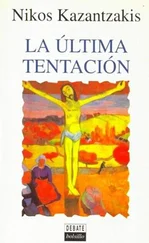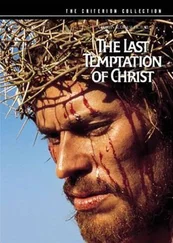Nikos Kazantzakis - Zorba The Greek
Здесь есть возможность читать онлайн «Nikos Kazantzakis - Zorba The Greek» весь текст электронной книги совершенно бесплатно (целиком полную версию без сокращений). В некоторых случаях можно слушать аудио, скачать через торрент в формате fb2 и присутствует краткое содержание. Жанр: Современная проза, на английском языке. Описание произведения, (предисловие) а так же отзывы посетителей доступны на портале библиотеки ЛибКат.
- Название:Zorba The Greek
- Автор:
- Жанр:
- Год:неизвестен
- ISBN:нет данных
- Рейтинг книги:3 / 5. Голосов: 1
-
Избранное:Добавить в избранное
- Отзывы:
-
Ваша оценка:
- 60
- 1
- 2
- 3
- 4
- 5
Zorba The Greek: краткое содержание, описание и аннотация
Предлагаем к чтению аннотацию, описание, краткое содержание или предисловие (зависит от того, что написал сам автор книги «Zorba The Greek»). Если вы не нашли необходимую информацию о книге — напишите в комментариях, мы постараемся отыскать её.
Zorba The Greek — читать онлайн бесплатно полную книгу (весь текст) целиком
Ниже представлен текст книги, разбитый по страницам. Система сохранения места последней прочитанной страницы, позволяет с удобством читать онлайн бесплатно книгу «Zorba The Greek», без необходимости каждый раз заново искать на чём Вы остановились. Поставьте закладку, и сможете в любой момент перейти на страницу, на которой закончили чтение.
Интервал:
Закладка:
Every evening Zorba takes me through Greece, Bulgaria and Constantinople. I shut my eyes and I see. He has been all over the racked and chaotic Balkans and observed everything with his little falcon-like eyes, which he constantly opens wide in amazement. Things we are accustomed to, and which we pass by indifferently, suddenly rise up in front of Zorba like fearful enigmas. Seeing a woman pass by, he stops in consternation.
"What is that mystery?" he asks. "What is a woman, and why does she turn our heads? Just tell me, I ask you, what's the meaning of that?"
He interrogates himself with the same amazement when he sees a man, a tree in blossom, a glass of cold water. Zorba sees everything every day as if for the first time.
We were sitting yesterday in front of the hut. When he had drunk a glass of wine, he turned to me in alarm:
"Now whatever is this red water, boss, just tell me! An old stock grows branches, and at first there's nothing but a sour bunch of beads hanging down. Time passes, the sun ripens them, they become as sweet as honey, and then they're called grapes. We trample on them; we extract the juice and put it into casks; it ferments on its own, we open it on the feast day of St. John the Drinker, [9]it's become wine! It's a miracle! You drink the red juice and, lo and behold, your soul grows big, too big for the old carcass, it challenges God to a fight. Now tell me, boss, how does it happen?"
I did not answer. I felt, as I listened to Zorba, that the world was recovering its pristine freshness. All the dulled daily things regained the brightness they had in the beginning, when we came out of the hands of God. Water, women, the stars, bread, returned to their mysterious, primitive origin and the divine whirlwind burst once more upon the air.
That is why, every evening, lying on the pebbles, I impatiently waited for Zorba. I would see him suddenly emerge out of the bowels of the earth and approach with his loose-knit body and long striding step. From afar I could see how the work had fared that day, by his bearing, by the way he held his head high or low, by the swíng of his arms.
At first I also went with him. I watched the men. I endeavored to lead a different type of life, to interest myself in practical work, to know and love the human material which had fallen into my hands, to feel the long-wished-for joy of no longer having to deal with words but with living men. And I made romantic plans-if the extraction of lignite was successful-to organize a sort of community in which everything should be shared, where we should eat the same food together and wear the same clothes, like brothers. I created in my mind a new religious order, the leaven of a new life…
But I had not yet made up my mind to acquaint Zorba with my project. He was irritated by my comings and goings amongst the workmen, questioning, interfering and always taking the workman's part.
Zorba would purse his lips and say:
"Boss, aren't you going for a stroll outside? The sun and the sea, you know!"
At first I insisted, and would not go. I asked questions, gossiped, and got to know every man's history-how many children they had to feed, sisters to be married, helpless old relations; their cares, illnesses and worries.
"Don't delve like that into their histories, boss," Zorba would say, scowling. "You'll be taken in, with your soft heart, and you'll like them more than's good for them or for our work. Whatever they do, you'll find excuses for them. Then, heaven help us, they'll scamp their work, do it any old how. Heaven help them, too, you'd better realize that. When the boss is hard, the men respect him, they work. When the boss is soft, they leave it all to him, and have an easy time. Get me?"
Another evening, after work, he threw his pick down in the shed and shouted, out of all patience:
"Look here, boss, do stop meddling. As fast as I build, you destroy. Now what are all those things you were telling them today? Socialism and rubbish! Are you a preacher or a capitalist? You must make up your mind!"
But how could I choose? I was consumed by the ingenuous desire of uniting these two things, of finding a synthesis in which the irreducible opposites would fraternize, and of winning both the earthly life and the kingdom of the skies. This had been going on for years, ever since my early childhood. When I was still at school, I had organized with my closest friends a secret Friendly Society [10]-that was the name we gave it-and, locked in my bedroom, we swore that, all our life, we would devote ourselves to the fighting of injustice. Great tears ran down our faces when, with hand on heart, we took the oath.
Puerile ideals! But woe betide whoever laughs when he hears them! When I see what the members of the Friendly Society have become-quack doctors, small-time lawyers, grocers, double-dealing politicians, hack journalists-it rends my heart. The climate of this world seems to be harsh and raw. The most precious seeds do not germinate or are choked by undergrowth and nettles. I can see quite clearly today, as regards myself, that I am not stifled by reason, God be praised! I still feel ready to set out on Quixotic expeditions.
On Sundays we both performed our toilet with care, as if we were marriageable young people. We shaved, we put on clean white shirts, and went, towards the end of the afternoon, to see Dame Hortense. Every Sunday she killed a fowl for us; we once more sat down all three together; we ate and we drank; Zorba's long hands would reach out to the hospitable bosom of the kind woman and take possession of it. When at nightfall we returned to our part of the shore, life appeared simple and full of good intentions, old, but very agreeable and hospitable-like Dame Hortense.
On one of these Sundays, as we were returning from the copious feast, I decided to speak and tell Zorba of my plans. He listened, gaping and forcing himself to be patient. But from time to time he shook his great head with anger. My very first words had sobered him, the fumes left his brain. When I had finished, he nervously plucked two or three hairs from his moustache.
"I hope you don't mind my saying so, boss, but I don't think your brain is quite formed yet. How old are you?"
"Thirty-five."
"Then it never will be."
Thereupon he burst out laughing. I was stung to the quick.
"You don't believe in man, do you?" I retorted.
"Now, don't get angry, boss. No, I don't believe in anything. If I believed in man, I'd believe in God, and I'd believe in the devil, too. And that's a whole business. Things get all muddled then, boss, and cause me a lot of complications."
He became silent, took off his beret, scratched his head frantically and tugged again at his moustache, as if he meant to tear it off. He wanted to say something, but he restrained himself. He looked at me out of the corner of his eye; looked at me again and decided to speak.
"Man is a brute," he said, striking the pebbles with his stick. "A great brute. Your lordship doesn't realize this. It seems everything's been too easy for you, but you ask me! A brute, I tell you! If you're cruel to him, he respects and fears you. If you're kind to him, he plucks your eyes out.
"Keep your distance, boss! Don't make men too bold, don't go telling them we're all equal, we've got the same rights, or they'll go straight and trample on your rights; they'll steal your bread and leave you to die of hunger. Keep your distance, boss, by all the good things I wish you!"
"But don't you believe in anything?" I exclaimed in exasperation.
"No, I don't believe in anything. How many times must I tell you that? I don't believe in anything or anyone; only in Zorba. Not because Zorba is better than the others; not at all, not a little bit! He's a brute like the rest! But I believe in Zorba because he's the only being I have in my power, the only one I know. All the rest are ghosts. I see with these eyes, I hear with these ears, I digest with these guts. All the rest are ghosts, I tell you. When I die, everything'll die. The whole Zorbatic world will go to the bottom!"
Читать дальшеИнтервал:
Закладка:
Похожие книги на «Zorba The Greek»
Представляем Вашему вниманию похожие книги на «Zorba The Greek» списком для выбора. Мы отобрали схожую по названию и смыслу литературу в надежде предоставить читателям больше вариантов отыскать новые, интересные, ещё непрочитанные произведения.
Обсуждение, отзывы о книге «Zorba The Greek» и просто собственные мнения читателей. Оставьте ваши комментарии, напишите, что Вы думаете о произведении, его смысле или главных героях. Укажите что конкретно понравилось, а что нет, и почему Вы так считаете.












